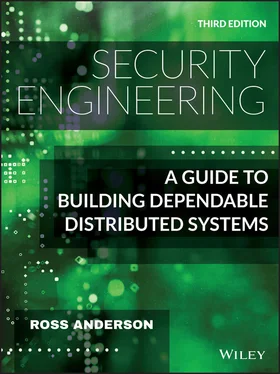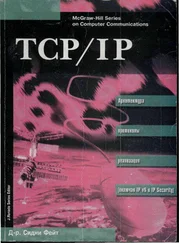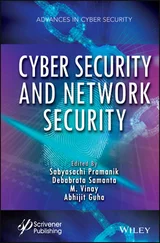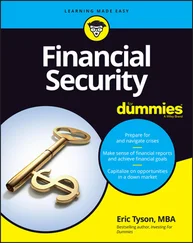Where all this leads is that the nature and scale of online deception can be modulated by suitable interaction design. Nobody is as happy as they appear on Facebook, as attractive as they appear on Instagram or as angry as they appear on Twitter. They let their guard down on closed groups such as those supported by WhatsApp, which offer neither celebrity to inspire performance, nor anonymity to promote trolling. However, people are less critical in closed groups, which makes them more suitable for spreading conspiracy theories, and for radicalisation [523].
3.2.5 Heuristics, biases and behavioural economics
One field of psychology that has been applied by security researchers since the mid-2000s has been decision science , which sits at the boundary of psychology and economics and studies the heuristics that people use, and the biases that influence them, when making decisions. It is also known as behavioural economics , as it examines the ways in which people's decision processes depart from the rational behaviour modeled by economists. An early pioneer was Herb Simon – both an early computer scientist and a Nobel-prizewinning economist – who noted that classical rationality meant doing whatever maximizes your expected utility regardless of how hard that choice is to compute. So how would people behave in a realistic world of bounded rationality? The real limits to human rationality have been explored extensively in the years since, and Daniel Kahneman won the Nobel prize in economics in 2002 for his major contributions to this field (along with the late Amos Tversky) [1006].
3.2.5.1 Prospect theory and risk misperception
Kahneman and Tversky did extensive experimental work on how people made decisions faced with uncertainty. They first developed prospect theory which models risk appetite: in many circumstances, people dislike losing $100 they already have more than they value winning $100. Framing an action as avoiding a loss can make people more likely to take it; phishermen hook people by sending messages like ‘Your PayPal account has been frozen, and you need to click here to unlock it.’ We're also bad at calculating probabilities, and use all sorts of heuristics to help us make decisions:
we often base a judgment on an initial guess or comparison and then adjust it if need be – the anchoring effect;
we base inferences on the ease of bringing examples to mind – the availability heuristic, which was OK for lion attacks 50,000 years ago but gives the wrong answers when mass media bombard us with images of terrorism;
we're more likely to be sceptical about things we've heard than about things we've seen, perhaps as we have more neurons processing vision;
we worry too much about events that are very unlikely but have very bad consequences;
we're more likely to believe things we've worked out for ourselves rather than things we've been told.
Behavioral economics is not just relevant to working out how likely people are to click on links in phishing emails, but to the much deeper problem of the perception of risk. Many people perceive terrorism to be a much worse threat than epidemic disease, road traffic accidents or even food poisoning: this is wrong, but hardly surprising to a behavioural economist. We overestimate the small risk of dying in a terrorist attack not just because it's small but because of the visual effect of the 9/11 TV coverage, the ease of remembering the event, the outrage of an enemy attack, and the effort we put into thinking and worrying about it. (There are further factors, which we'll explore in Part 3when we discuss terrorism.)
The misperception of risk underlies many other public-policy problems. The psychologist Daniel Gilbert, in an article provocatively entitled ‘If only gay sex caused global warming’, compares our fear of terrorism with our fear of climate change. First, we evolved to be much more wary of hostile intent than of nature; 100,000 years ago, a man with a club (or a hungry lion) was a much worse threat than a thunderstorm. Second, global warming doesn't violate anyone's moral sensibilities; third, it's a long-term threat rather than a clear and present danger; and fourth, we're sensitive to rapid changes in the environment rather than slow ones [765]. There are many more risk biases: we are less afraid when we're in control, such as when driving a car, as opposed to being a passenger in a car or airplane; and we are more afraid of uncertainty, that is, when the magnitude of the risk is unknown (even when it's small) [1674, 1678]. We also indulge in satisficing which means we go for an alternative that's ‘good enough’ rather than going to the trouble of trying to work out the odds perfectly, especially for small transactions. (The misperception here is not that of the risk taker, but of the economists who ignored the fact that real people include transaction costs in their calculations.)
So, starting out from the folk saying that a bird in the hand is worth two in the bush, we can develop quite a lot of machinery to help us understand and model people's attitudes towards risk.
3.2.5.2 Present bias and hyperbolic discounting
Saint Augustine famously prayed ‘Lord, make me chaste, but not yet.’ We find a similar sentiment with applying security updates, where people may pay more attention to the costs as they're immediate and determinate in time, storage and bandwidth, than the unpredictable future benefits. This present bias causes many people to decline updates, which was the major source of technical vulnerability online for many years. One way software companies pushed back was by allowing people to delay updates: Windows has ‘restart / pick a time / snooze’. Reminders cut the ignore rate from about 90% to about 34%, and may ultimately double overall compliance [726]. A better design is to make updates so painless that they can be made mandatory, or nearly so; this is the approach now followed by some web browsers, and by cloud-based services generally.
Hyperbolic discounting is a model used by decision scientists to quantify present bias. Intuitive reasoning may lead people to use utility functions that discount the future so deeply that immediate gratification seems to be the best course of action, even when it isn't. Such models have been applied to try to explain the privacy paradox – why people say in surveys that they care about privacy but act otherwise online. I discuss this in more detail in section 8.67: other factors, such as uncertainty about the risks and about the efficacy of privacy measures, play a part too. Taken together, the immediate and determinate positive utility of getting free stuff outweighs the random future costs of disclosing too much personal information, or disclosing it to dubious websites.
3.2.5.3 Defaults and nudges
This leads to the importance of defaults. Many people usually take the easiest path and use the standard configuration of a system, as they assume it will be good enough. In 2009, Richard Thaler and Cass Sunstein wrote a bestseller ‘Nudge’ exploring this, pointing out that governments can achieve many policy goals without infringing personal liberty simply by setting the right defaults [1879]. For example, if a firm's staff are enrolled in a pension plan by default, most will not bother to opt out, while if it's optional most will not bother to opt in. A second example is that many more organs are made available for transplant in Spain, where the law lets a dead person's organs be used unless they objected, than in Britain where donors have to consent actively. A third example is that tax evasion can be cut by having the taxpayer declare that the information in the form is true when they start to fill it out, rather than at the end. The set of choices people have to make, the order in which they make them, and the defaults if they do nothing, are called the choice architecture . Sunnstein got a job in the Obama administration implementing some of these ideas while Thaler won the 2017 economics Nobel prize.
Читать дальше











